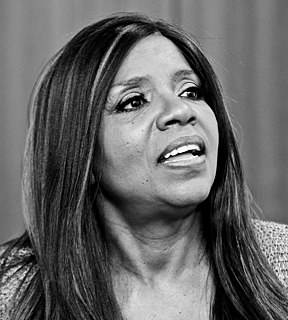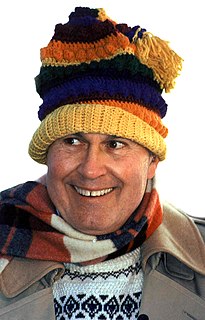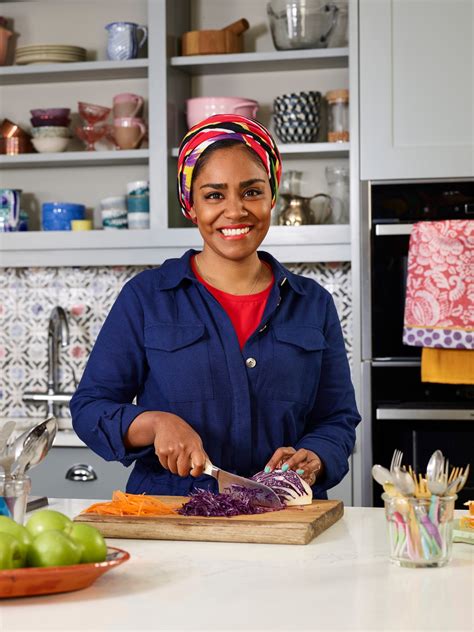A Quote by Derrick Grayson
My grandmother, who picked cotton, and my mom, who picked cotton as a child - my grandmother had a work ethic. She had 13 children that she had to raise and ended up for a time moving into the projects, but because my grandmother had a work ethic, she didn't stay in the projects... that's not how she wanted to raise her children.
Related Quotes
I asked my grandmother how a Hungarian Jewish person can experience being Jewish. My grandmother answered was the only choice was to "keep quiet." I can understand her because she was a Holocaust survivor, and for her survival, she had to keep quiet. But I didn't obey my grandmother when I was a child, and in this case, I don't obey her either.
One thing I did have under my belt was, my mother lost her mother when she was 11. She mourned her mother her whole life and made my grandmother seem present even though I never met her. I couldn't imagine how my mom could go on but she did, she took care of us, she worked two jobs and had four children. She was such a good example of how to conduct oneself in a time of grief. When I lost my husband, I tried to model myself as much as I could on her.
I think my mother became the muse because she had everything when she was in Hollywood: she had the marriage, the success, the money, all the films she wanted to do and yet even her, she had a longing and wanted to work with a film that had meaning, something more profound. And I think that was very touching to father.
It's right around this time that her Grandmother Hall dies. And Eleanor Roosevelt is responsible for making all the funeral arrangements. And there are a couple of things that she really understands, as she contemplates her grandmother's life and makes the funeral arrangements. One, she's really talented, an organizational woman. She knows how to do things. She begins to compare her life to her grandmother's life. And it's very clear to her that being a devoted wife and a devoted mother is not enough.
I heard a story about a woman who grew up in Texas. When she was having trouble in her life, she would visit her grandmother, who lived nearby and always had a kind word and some wisdom to pass on. One day she was complaining to her grandmother about some situation and her grandmother just turned to her, smiled sadly, and said, "Sometimes, darlin', you've just got to rise above yourself in this life." I've remembered that wise advice many times as I've faced trouble in my life.
My mother was very passionate about life and she would do anything for us. And she had to fight alone to raise us. We never had a lot of money for extras or anything. She had to work six days a week, and then she would do breakfast, lunch and dinner. She was a super-woman! For me, I don't know how she did it with three kids.
My grandmother stepped back into the kitchen to get their drinks. I had come to love her more after death than I ever had on Earth. I wish I could say that in that moment in the kitchen she decided to quit drinking, but I now saw that drinking was a part of what made her who she was. If the worst of what she left on Earth was a legacy of inebriated support, it was a good legacy in my book. ~Susie's grandmother, Lynn pgs 315-316

































